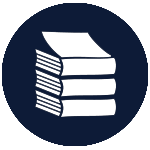
Guide index
 Library > Library guides > Training & examinations > Anaesthesia training resources > ANZCA primary exams (PEx): Recommended reading list
Library > Library guides > Training & examinations > Anaesthesia training resources > ANZCA primary exams (PEx): Recommended reading list
How to access e-books
 Use your ANZCA college ID (or staff username) and password to access library e-resources.
Use your ANZCA college ID (or staff username) and password to access library e-resources.
 Having trouble logging into e-resources? Try emptying your browser cache, closing and reopening your browser and trying again.
Having trouble logging into e-resources? Try emptying your browser cache, closing and reopening your browser and trying again.
 Forgotten your ANZCA password? Try resetting your password using the "Forgot Password?" link and/or messaging the "Technical support" via the college contact form
Forgotten your ANZCA password? Try resetting your password using the "Forgot Password?" link and/or messaging the "Technical support" via the college contact form
 Can't find your book online? Borrow a print copy or request a chapter via our article request service
Can't find your book online? Borrow a print copy or request a chapter via our article request service
 Experiencing difficulties, or need help accessing e-books? Contact the Library
Experiencing difficulties, or need help accessing e-books? Contact the Library
 For further information about searching and accessing e-books, see the E-books guide
For further information about searching and accessing e-books, see the E-books guide
Borrowing books
 ANZCA library provides access to a large range of print items, specialising in anaesthesia and pain medicine-related titles.
ANZCA library provides access to a large range of print items, specialising in anaesthesia and pain medicine-related titles.
 For further information about requesting books, see the Borrowing books page
For further information about requesting books, see the Borrowing books page
The recommended reading list (…and beyond)
Candidates are advised that all examination questions are based on Learning Outcomes (LOs) and that the great majority of information required is contained in the recommended texts. The most recent version of each of the following texts is the recommended text. However, some topics are only superficially covered in the textbooks and candidates are advised to draw on many resources as they study, in order to gain a deeper understanding of those areas that relate to everyday anaesthetic practice.
 Appendix 2: Study Guide for the Primary Exam
by
Appendix 2: Study Guide for the Primary Exam
by
 Appendix 2 contains all of the Learning Outcomes which are examinable in the primary exam, and should form the basis of teaching and study programs for the primary exam.
Appendix 2 contains all of the Learning Outcomes which are examinable in the primary exam, and should form the basis of teaching and study programs for the primary exam.

 Note: Resources located in Learn@ANZCA require that you first register before accessing.
Note: Resources located in Learn@ANZCA require that you first register before accessing.
 This text should be studied thoroughly. It covers a large number of the primary LOs very well.
This text should be studied thoroughly. It covers a large number of the primary LOs very well.
 Stoelting's Pharmacology and Physiology in Anesthetic Practice, 6e
by
Stoelting's Pharmacology and Physiology in Anesthetic Practice, 6e
by
 Similar to Hemmings & Egan (see above). Covers some LOs not contained in Hemmings & Egan.
Similar to Hemmings & Egan (see above). Covers some LOs not contained in Hemmings & Egan.
 Miller's Anesthesia, 10e
by
Miller's Anesthesia, 10e
by
 This text provides excellent detailed coverage of most core areas.
This text provides excellent detailed coverage of most core areas.
 This chapter from the 8th edition of Miller's was discontinued in the 9th and 10th editions. It contains essential detail on the cardiovascular effects of inhalational agents.
This chapter from the 8th edition of Miller's was discontinued in the 9th and 10th editions. It contains essential detail on the cardiovascular effects of inhalational agents.
 Although last published in 2005, this text contains some content/chapters not covered in other texts.
Although last published in 2005, this text contains some content/chapters not covered in other texts.
 The most helpful chapters are: 15, 28, 32, 70, 89, 92, 93, 94, 95, 97, 98.
The most helpful chapters are: 15, 28, 32, 70, 89, 92, 93, 94, 95, 97, 98.
 Acute Pain Management: Scientific Evidence, 5e
by
Acute Pain Management: Scientific Evidence, 5e
by
 The most helpful chapters are: 1.1, 1.4 and 1.5. Otherwise, use the search function to find information about specific LOs.
The most helpful chapters are: 1.1, 1.4 and 1.5. Otherwise, use the search function to find information about specific LOs.
 The most helpful chapters are: 1-7, 10-13, 26-28.
The most helpful chapters are: 1-7, 10-13, 26-28.
General physiology
 This text should be studied thoroughly. Additional texts are needed for respiratory-, cardiac- and renal-specific physiology (see below).
This text should be studied thoroughly. Additional texts are needed for respiratory-, cardiac- and renal-specific physiology (see below).
 Use to supplement Kam & Power (see above) as needed.
Use to supplement Kam & Power (see above) as needed.
 Use to supplement Kam & Power (see above) as needed.
Use to supplement Kam & Power (see above) as needed.


Respiratory physiology
 Use as a revision aid, after studying Nunn & Lumb's.
Use as a revision aid, after studying Nunn & Lumb's.
Cardiovascular physiology
Renal physiology
General pharmacology
 Useful for basic PK/PD, and drug groups applicable to community/perioperative medicine settings.
Useful for basic PK/PD, and drug groups applicable to community/perioperative medicine settings.
 Useful for basic PK/PD, and drug groups applicable to community/perioperative medicine settings. Use as an alternative to Katzung & Trevor.
Useful for basic PK/PD, and drug groups applicable to community/perioperative medicine settings. Use as an alternative to Katzung & Trevor.
 Very detailed. Use the search function to find information about specific LOs, as required.
Very detailed. Use the search function to find information about specific LOs, as required.
Anaesthetic pharmacology
 See also: Integrated physiology and pharmacology section (above)
See also: Integrated physiology and pharmacology section (above)
 Contains detailed coverage of most areas.
Contains detailed coverage of most areas.
 Excellent coverage of local anaesthetics and neuraxial anaesthesia. The most useful chapters are: 2, 3, 4, 5, 9, 10, 11.
Excellent coverage of local anaesthetics and neuraxial anaesthesia. The most useful chapters are: 2, 3, 4, 5, 9, 10, 11.
 Chapters relevant to the primary exam are: 1, 2, 3, 4 (pp. 149-155), 5, 7 (pp. 295-302), 8. Note: Only the anatomy LOs contained in Appendix 2 are examinable in the primary exam.
Chapters relevant to the primary exam are: 1, 2, 3, 4 (pp. 149-155), 5, 7 (pp. 295-302), 8. Note: Only the anatomy LOs contained in Appendix 2 are examinable in the primary exam.
 Our dedicated anaesthesia training resources guide provides resource support for all parts of the anaesthesia training program and curriculum, as well as an extensive list of assessment and exam resources.
Our dedicated anaesthesia training resources guide provides resource support for all parts of the anaesthesia training program and curriculum, as well as an extensive list of assessment and exam resources.
Find out more
 For more information about the Primary Exam (PEx), visit the college Anaesthesia exams webpage.
For more information about the Primary Exam (PEx), visit the college Anaesthesia exams webpage.
Learn@ANZCA
Learn@ANZCA (formerly Networks) is the college's learning management system.
 Note: Some resources located in Learn@ANZCA require that you first register before accessing.
Note: Some resources located in Learn@ANZCA require that you first register before accessing.
 Additional PEx revision resources are located in the PEx Revision Aids section of the Anaesthesia Training Resources guide.
Additional PEx revision resources are located in the PEx Revision Aids section of the Anaesthesia Training Resources guide.

*Please Note: The user must create a free local profile to access this feature.

 Helpful information about a range of equipment and monitoring devices.
Helpful information about a range of equipment and monitoring devices.
 The most helpful chapters are: 2, 3, 4, 5, 12, 20.
The most helpful chapters are: 2, 3, 4, 5, 12, 20.

Quick links
About ANZCA
Copyright © Australian and New Zealand College of Anaesthetists.